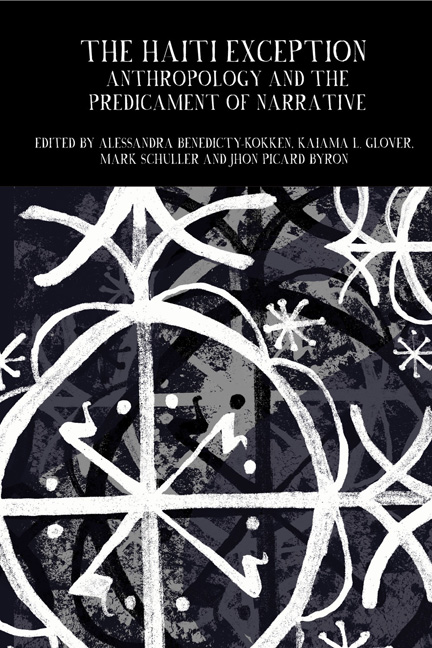Editors’ Introduction
Summary
In the large periodic table of human societies, Haiti could therefore not miss appearing as a social molecule whose small dimensions retained remarkable properties, a molecule formed, it would seem, of atoms capable of releasing exceptional quantities of energy. This fact alone should justify the impassioned attention devoted increasingly by sociologists and ethnographers to Haitian society.
– Claude Lévi-StraussLet me admit at the outset that I am obsessed by Haiti.
– Colin (Joan) DayanIt is a deeply peculiar phenomenon, Haiti's ‘popularity’. Marked by qualitative extremes – first successful slave revolt, first black republic, most African Caribbean culture, most dangerous tourist destination, among others – the country occupies a unique place in the collective consciousness of the modern American hemisphere. And it is fair to say that many have been ‘obsessed by Haiti’ over the course of the so-called ‘American Century’, and since. Yet, at the same time, the nation has factored little and only indirectly (that is, without substantive, recognizable agency) in shaping the politics and the policies of a contemporary global order largely crafted by ‘former’ and current North Atlantic imperial powers. In the past decade, many scholars of Haiti have lamented the ways in which the island nation, its history and contemporary realities, have been constructed and circulated outside of the country – by the international media, by political pundits, by development and humanitarian aid workers, by missionaries and even by academics working more or less directly within the deeply interdisciplinary field that is Haitian Studies. Appearing in many forms and emerging from multiple sources, the narrative of Haiti's exceptional nature has been persistent and constraining. At once postcolonially international and colonially French, Haiti has occupied a fraught geopolitical position that, over the course of its more than 500-year history, has determined the singular parameters of its development – and underdevelopment – from colony to modern nation-state. It has also yielded an extremely particular narrative, one that has persistently muted the extent to which Haiti has historically undone the presumptuous demands of empire.
Arguably the most significant source and pervasive vehicle of this narrative is the discipline of anthropology; and so it is that anthropology, specifically cultural anthropology, as it has developed as an academic field and professional practice in the United States, serves as the point of departure for this volume.
- Type
- Chapter
- Information
- The Haiti ExceptionAnthropology and the Predicament of Narrative, pp. 1 - 12Publisher: Liverpool University PressPrint publication year: 2016



